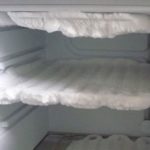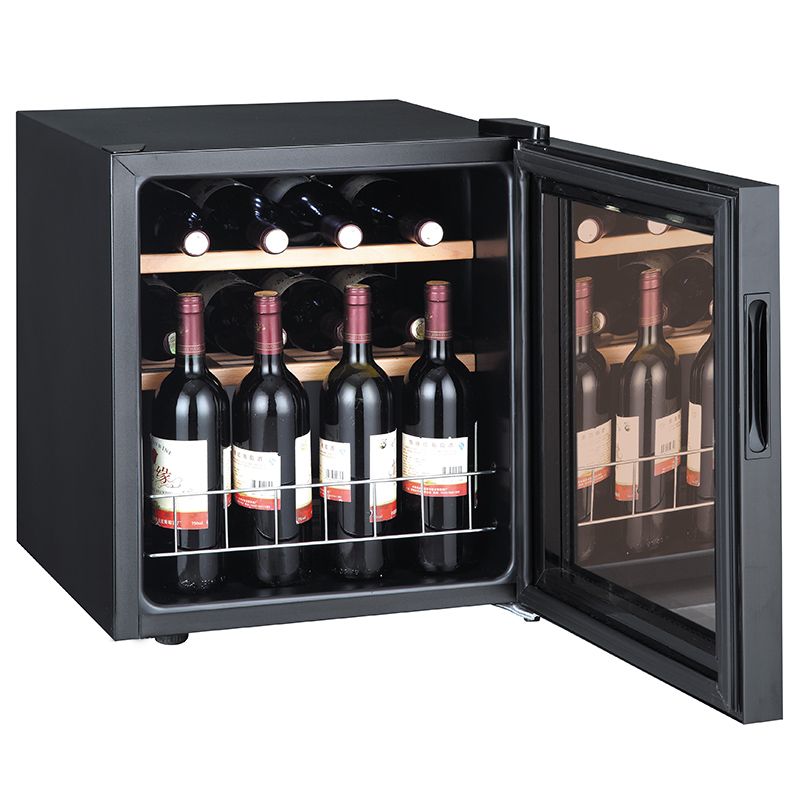The refrigerator is making a loud noise - what should I do?
 What noise should you not be bothered by? A refrigerator can be loud for a variety of reasons. This picture is not a cause for concern when it comes to devices with the No Frost system. They may be noisy for a week after connection. This happens due to the fact that power was supplied immediately after installation and the equipment was not left to sit for several hours.
What noise should you not be bothered by? A refrigerator can be loud for a variety of reasons. This picture is not a cause for concern when it comes to devices with the No Frost system. They may be noisy for a week after connection. This happens due to the fact that power was supplied immediately after installation and the equipment was not left to sit for several hours.
Some models make noise when ice first forms in the freezer, and this phenomenon sometimes repeats when the device is completely defrosted and then turned on. It happens that when starting up, the compressor motor begins to “growl” because it needs a large starting current.
Another possible option for loud operation is setting the maximum negative temperature for freezing products at first start. Finally, the presence of transport bolts or improper placement of the unit are possible causes of increased noise.
Reference! If, when choosing home refrigeration equipment, the issue of maximum silence is fundamental, then it is useful to pay attention to the label located on the door. In its lower part, as a rule, the number of decibels is indicated, which will allow you to select the quietest model.
The content of the article
When noise is a sign of a possible problem
 If the chambers are loaded with products correctly, during the first start-up you did not forget to remove the transport bolts from the compressor shock absorbers, and the device stood for several hours after final installation, then a loud hum may be evidence of some kind of malfunction. In the case of used devices, problems are indicated by extraneous sounds that have never appeared before during operation.
If the chambers are loaded with products correctly, during the first start-up you did not forget to remove the transport bolts from the compressor shock absorbers, and the device stood for several hours after final installation, then a loud hum may be evidence of some kind of malfunction. In the case of used devices, problems are indicated by extraneous sounds that have never appeared before during operation.
Possible causes of loud noise when the refrigerator is operating
Incorrect installation of the refrigeration unit
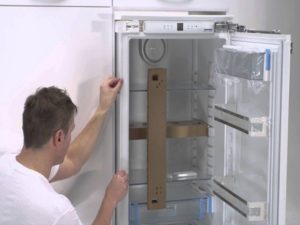 When installing, do not forget to level the housing. Otherwise, skew of the device in the horizontal or vertical plane may cause the compressor unit to come into contact with metal elements of the pipeline. Another variant – lack of contact of one support leg with the floor, which leads to vibrations and increased noise.
When installing, do not forget to level the housing. Otherwise, skew of the device in the horizontal or vertical plane may cause the compressor unit to come into contact with metal elements of the pipeline. Another variant – lack of contact of one support leg with the floor, which leads to vibrations and increased noise.
Extreme load on capacitor
This unit is under stress and cannot cope with heat dissipation into the environment if the refrigeration unit is located close to the wall or is densely packed with furniture. Free and sufficient air access to the coil of the heat exchange element plays an important role, allowing it to transfer heat well. If this unit functions poorly, the compressor experiences additional loads and begins to make noise: the knocking of valves is heard and engine vibration is noticeable.
Fan problem
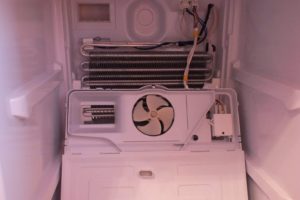 Vibration and whistling of the fan are possible only in refrigerators with the No Frost system. In such models, two fans are sometimes installed, one of which works to cool the freezer evaporator, the other creates optimal conditions for the functioning of the evaporator in the refrigerator compartment. If operating conditions lead to constant temperature fluctuations, the electric motor lubricant gradually loses its protective properties. The fan begins to make a characteristic loud sound.
Vibration and whistling of the fan are possible only in refrigerators with the No Frost system. In such models, two fans are sometimes installed, one of which works to cool the freezer evaporator, the other creates optimal conditions for the functioning of the evaporator in the refrigerator compartment. If operating conditions lead to constant temperature fluctuations, the electric motor lubricant gradually loses its protective properties. The fan begins to make a characteristic loud sound.
In addition to this problem, malfunctions may occur in the operation of the tubular electric heater, which is responsible for the automatic defrosting process. The gradual accumulation of ice in the chambers leads to the fact that the fan blades begin to touch the resulting mass, and noise appears.
Malfunctions in the electrical circuit
Firstly, the starting relay sometimes fails. A characteristic sign will be a strong “growling” when starting up and the refrigerator quickly turning off. Secondly, loud noise occurs when starting a device with burnt fan motor windings. Thirdly, the compressor motor windings burn out.
In this case, its body will be too hot. Finally, when the electric evaporator heater breaks down, there is an increased load on all elements of the system, which increases the noise level.
Incorrect compressor mounting
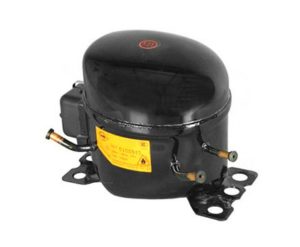 Long-term operation of refrigeration equipment leads to weakening of the fastening elements of the compressor and wear of the rubber gaskets at the place where it is seated. These two factors cause loud rattling noise.
Long-term operation of refrigeration equipment leads to weakening of the fastening elements of the compressor and wear of the rubber gaskets at the place where it is seated. These two factors cause loud rattling noise.
Refrigeration unit piping is clogged
As cold production decreases and the load on the compressor increases, extraneous sounds appear.Another reason for this is the formation of a blockage in the filter or capillary tube. The nature of the blockage has a direct impact on the further operation of the refrigerator, up to its complete stop.
Excess freon volume
This problem sometimes makes itself felt after repairs, when the refrigerator, while filling the system with new freon, introduces an excess amount. Subsequently, this will lead to a certain loss of performance and, as a result, to the possible appearance of additional, unnatural sounds.
Eliminating the Causes of Loud Noise
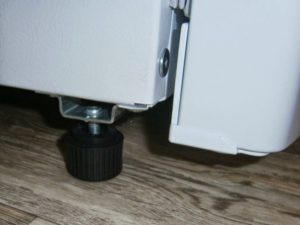 In case of incorrect installation, you need to use a building level to level the position of the refrigerator. It is also necessary to check that the support legs are touching the floor; if necessary, the height of the support element is adjusted using the thread. If the reason lies in the increased load on the condenser, then in accordance with the operating instructions it is necessary to provide a free area around the refrigeration equipment.
In case of incorrect installation, you need to use a building level to level the position of the refrigerator. It is also necessary to check that the support legs are touching the floor; if necessary, the height of the support element is adjusted using the thread. If the reason lies in the increased load on the condenser, then in accordance with the operating instructions it is necessary to provide a free area around the refrigeration equipment.
It makes sense to clean the condenser coil from dust, or, as a last resort, perform a complete defrost. It is worth remembering that monthly preventive cleaning will avoid many problems.
If there is a problem in the ventilation unit, you need to get rid of the ice crust in the chamber, if any, and lubricate the fan bearings. If the problem is that the compressor is not fastened correctly, then it is worth checking the quality of the fasteners. If necessary, old elements are replaced.
When you need professional help
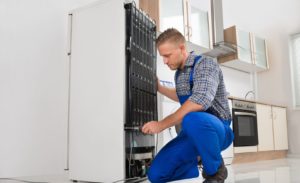 In case of malfunctions in the electrical circuit and in the absence of skills for appropriate repair work, it is better to entrust the matter to a specialist (electrician or refrigeration technician).If you have experience, you can solve the problem by checking the relevant components with a tester and replacing failed elements.
In case of malfunctions in the electrical circuit and in the absence of skills for appropriate repair work, it is better to entrust the matter to a specialist (electrician or refrigeration technician).If you have experience, you can solve the problem by checking the relevant components with a tester and replacing failed elements.
If there is increased noise due to an excess amount of freon or a clogged pipeline, you cannot do without professional help. Cleaning the system and getting rid of excess refrigerant is only possible with special tools and special equipment.


